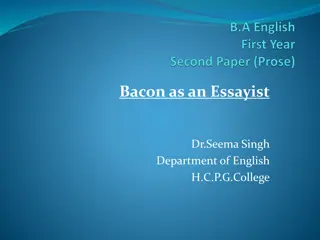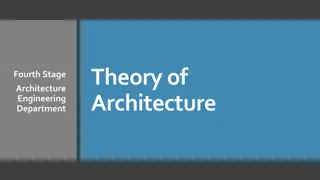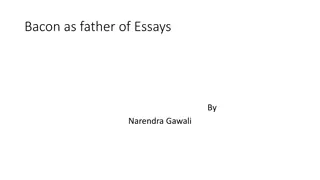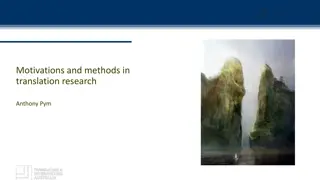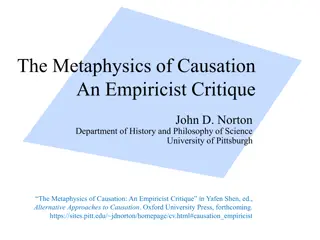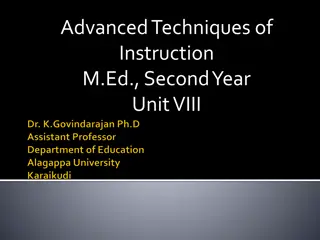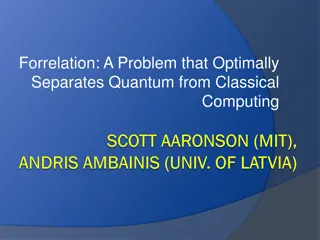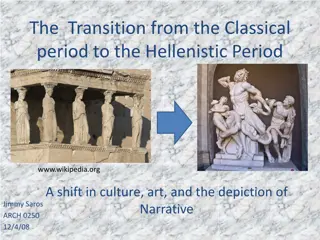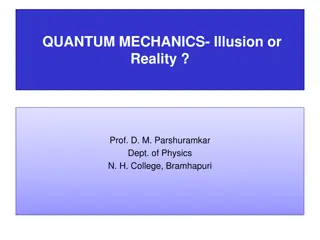Exploring Empiricism: Francis Bacon and Classical Perspectives
Empiricism, as championed by Francis Bacon, emphasizes the role of sensory experience in forming ideas over innate notions. It asserts that the human mind is like a tabula rasa, developing solely through observation and experimentation. Various forms of empiricism, such as explanatory and genetic empiricism, further elaborate on how knowledge is derived from experience rather than preconceived ideas. Classical figures like Aristotle also debunk the concept of innate knowledge, emphasizing the importance of observable phenomena in scientific theorizing.
Download Presentation

Please find below an Image/Link to download the presentation.
The content on the website is provided AS IS for your information and personal use only. It may not be sold, licensed, or shared on other websites without obtaining consent from the author. Download presentation by click this link. If you encounter any issues during the download, it is possible that the publisher has removed the file from their server.
E N D
Presentation Transcript
Empirisme Francis Bacon Kuliah4
tabula rasa : human mind is "blank" and develops only through experience EMPIRICISM (knowledge comes only from sensory experience, emphasizes the role of empirical evidence in the formation of ideas, rather than innate ideas) Innate idea, an idea inborn in the human mind, contrasted with those received from experience in the philosophy of science emphasises evidence as discovered in experiments
explanatory empiricism, denies the validity of inferences that cannot be observed Justificatory Empiricism ideas cannot be regarded as justified until successfully tested against experience Genetic Empiricism denies the existence of innate ideas or principles of reasoning
Empiricism The first is what we may call explanatory empiricism, which denies the validity of inferences from observable phenomena to causes that cannot themselves be observed. example is that of the physicist and philosopher Ernst Mach (1838 1916). At least for most of his life, Mach rejected the theory of atoms as an example of hypothetico-fictive physics
Genetic Empiricism :nothing is in the intellect which was not first in the senses, denies the existence of innate ideas or principles of reasoning, holding that both our factual knowledge and the concepts we employ in describing the world are drawn from experience
Justificatory empirism, merely insists that wherever our ideas come from and whatever they claim, they cannot be regarded as justified until they have been successfully tested against experience.
Empiricism in classical Perspectives Aristotle rejects the doctrine of innate ideas found in the work of Plato (427 347 BCE). He strongly denies, for instance, that we have innate knowledge of the principles of scientific demonstration We can regard him as who believes that scientific theorizing is answerable to what can be observed.
EMPIRICAL KNOWLEDGE instances of the presence of the characteristic under investigation, instances of its absence, or instances of its presence in varying degrees the rejection of whatever not to be connected with the Phenomenon classification, of those facts into three categories NOVUM ORGANUM first, a description of facts
idols of the tribe, idols of the cave, idols of the theatre IDOLS hinders clear thought idols of the market place


